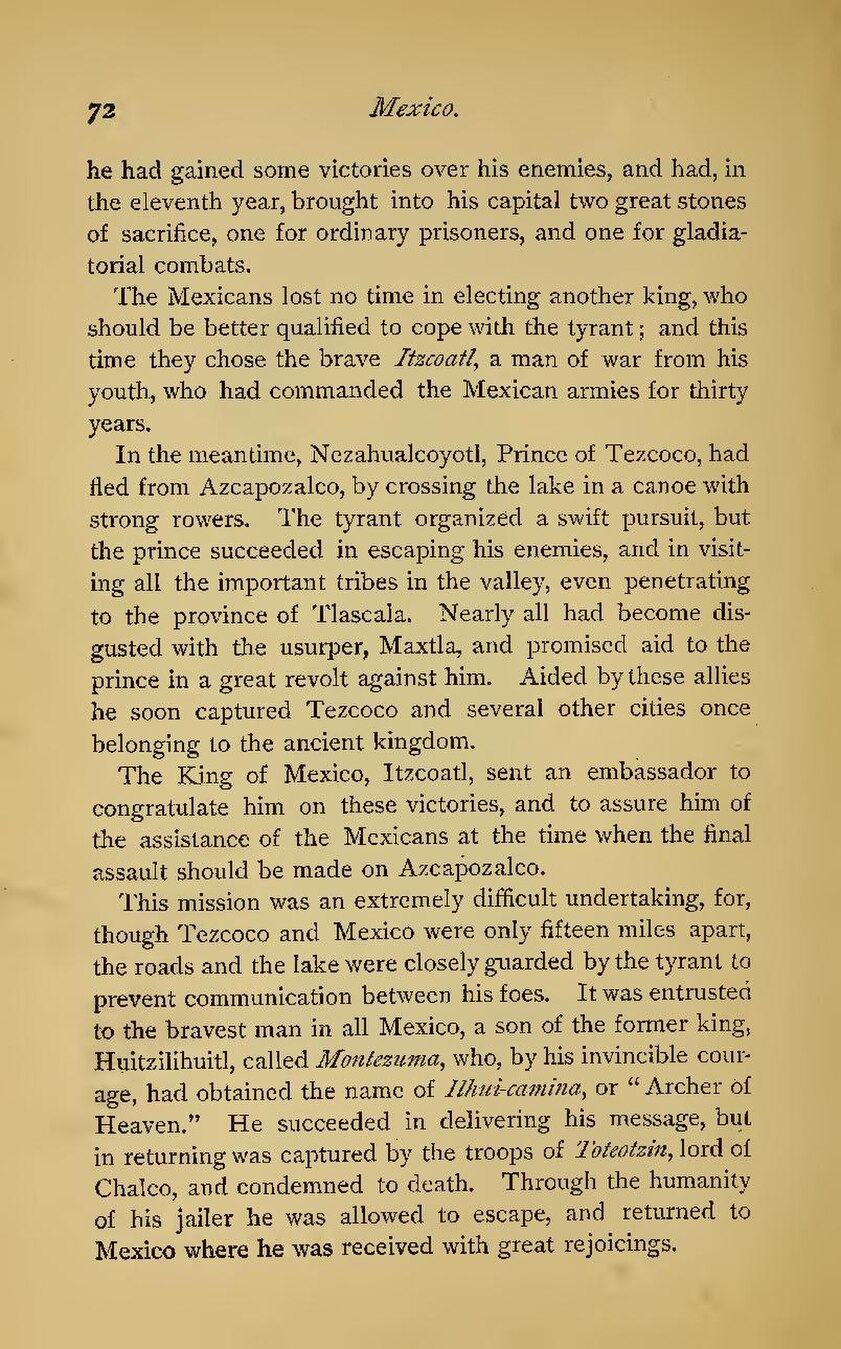he had gained some victories over his enemies, and had, in the eleventh year, brought into his capital two great stones of sacrifice, one for ordinary prisoners, and one for gladiatorial combats.
The Mexicans lost no time in electing another king, who should be better qualified to cope with the tyrant; and this time they chose the brave Itzcoatl, a man of war from his youth, who had commanded the Mexican armies for thirty years.
In the meantime, Nezahualcoyotl, Prince of Tezcoco, had fled from Azcapozalco, by crossing the lake in a canoe with strong rowers. The tyrant organized a swift pursuit, but the prince succeeded in escaping his enemies, and in visiting all the important tribes in the valley, even penetrating to the province of Tlascala. Nearly all had become disgusted with the usurper, Maxtla, and promised aid to the prince in a great revolt against him. Aided by these allies he soon captured Tezcoco and several other cities once belonging to the ancient kingdom.
The King of Mexico, Itzcoatl, sent an embassador to congratulate him on these victories, and to assure him of the assistance of the Mexicans at the time when the final assault should be made on Azcapozalco.
This mission was an extremely difficult undertaking, for, though Tezcoco and Mexico were only fifteen miles apart, the roads and the lake were closely guarded by the tyrant to prevent communication between his foes. It was entrusted to the bravest man in all Mexico, a son of the former king, Huitzilihuitl, called Montezuma, who, by his invincible courage, had obtained the name of Ilhui-camina, or "Archer of Heaven." He succeeded in delivering his message, but in returning was captured by the troops of Toteotzin, lord of Chalco, and condemned to death. Through the humanity of his jailer he was allowed to escape, and returned to Mexico where he was received with great rejoicings.
